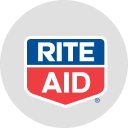
Pyzchiva Coupons & Savings Card – Discount Prices from $2057.71
Generic for: Pyzchiva
My prescription
Edit
0.5ML of 45MG/0.5ML, Pyzchiva (1 Syringe)
Select pharmacy

CVS
$2090.49
COUPON PRICE
Rite Aid
$2057.71
COUPON PRICE
Walgreens
$2145.85
COUPON PRICEPyzchiva savings card
Show this card to your pharmacist
Rite Aid
$2057.71
BIN
ID
PCN
GRP
019876
LH76A33A02
CHIPPO
LHX
Powered by
Pyzchiva Side Effects
What is the difference between Stelara and Remicade?
Stelara (ustekinumab) and Remicade (infliximab) are both biologic medications used to treat autoimmune conditions, but they differ in their mechanisms of action and administration. Stelara is an interleukin-12 and interleukin-23 antagonist, while Remicade is a tumor necrosis factor (TNF) inhibitor. Stelara is typically administered via subcutaneous injection, whereas Remicade is given through intravenous infusion. The choice between these medications depends on the specific condition being treated, patient response, and other individual factors.
What are the long term side effects of Stelara?
Long-term use of Stelara (ustekinumab) may be associated with several potential side effects. These can include an increased risk of infections due to its immunosuppressive effects, potential development of malignancies such as skin cancer, and possible allergic reactions. Some patients may also experience headaches, fatigue, or injection site reactions. It is important for patients to have regular follow-ups with their healthcare provider to monitor for any adverse effects and to discuss any concerns they may have.
What does Stelara do to your body?
Stelara works by targeting specific proteins in the immune system to reduce inflammation. It blocks the action of interleukin-12 and interleukin-23, which are involved in inflammatory and immune responses. This helps to alleviate symptoms associated with conditions like psoriasis, psoriatic arthritis, and Crohn's disease by reducing the overactive immune response.
What are the neurological side effects of Stelara?
Stelara (ustekinumab) can have neurological side effects, although they are not very common. Some potential neurological side effects include headaches, dizziness, and fatigue. In rare cases, more serious neurological effects such as reversible posterior leukoencephalopathy syndrome (RPLS) have been reported. Patients experiencing unusual neurological symptoms should contact their healthcare provider for further evaluation.
Can Stelara affect your eyes?
Stelara (ustekinumab) can potentially cause side effects that may affect the eyes, although such occurrences are not common. Patients may experience vision changes or eye pain, which should be promptly reported to a healthcare provider. It is important for individuals taking Stelara to have regular eye examinations and to inform their doctor of any new or worsening eye symptoms.
